On November 9th, a social practice team from ICARE embarked on a trip to the Yangxin Tea-Picking Opera Inheritance Center in Yangxin County, Huangshi City, Hubei Province. The visit aimed to explore the inheritance and development of the Yangxin Tea-Picking Opera and experience the charm of this national intangible cultural heritage.
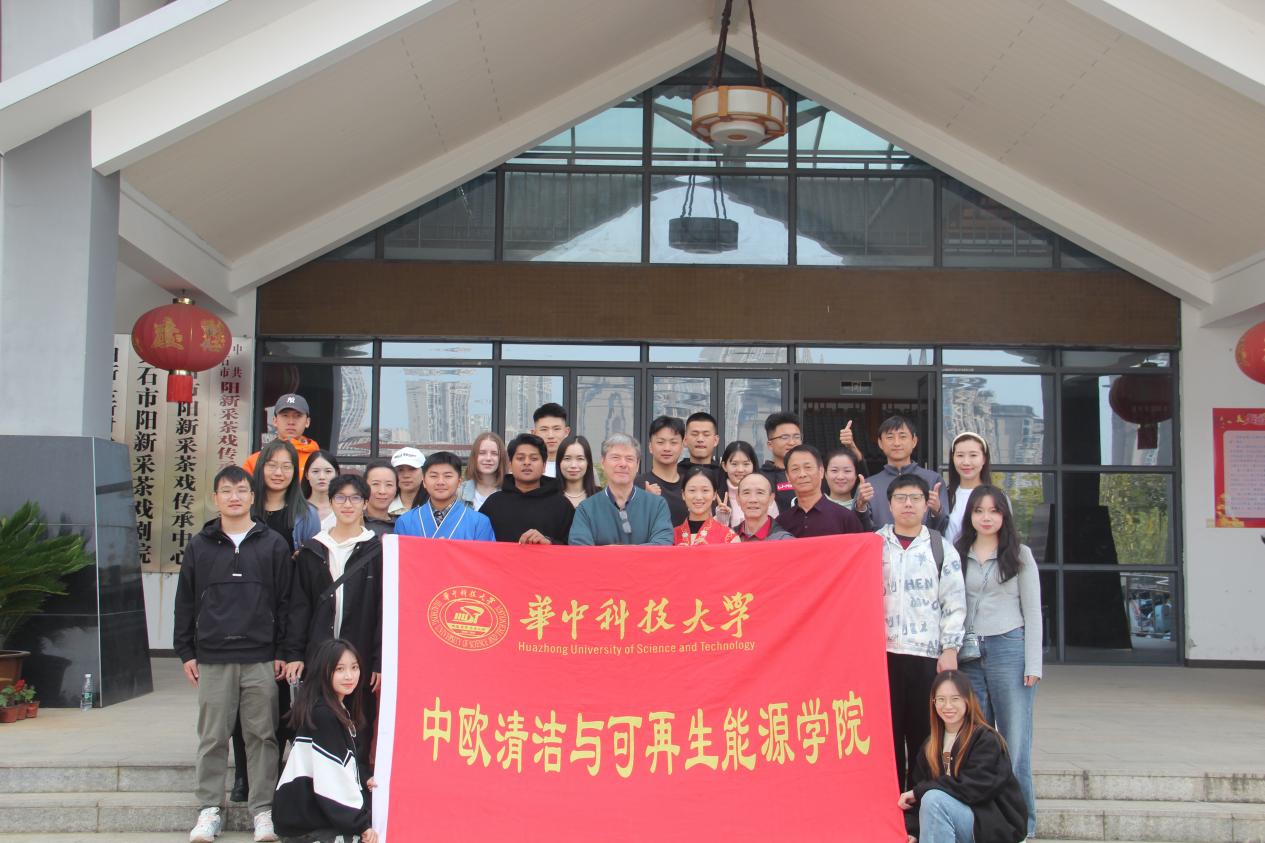
At the Yangxin Tea-Picking Opera Inheritance Center, the team toured the exhibition hall dedicated to the opera. They gained a deeper understanding of intangible cultural heritage and observed the innovative efforts being made to preserve it. Following the tour, the team watched a performance of the opera Butterfly Lovers. Accompanied by distinctive instruments such as the large frame gong, bass cymbal, and horse gong, the performers, dressed in vibrant costumes, delivered a captivating performance with their unique vocal styles, leaving a profound impact on the audience.
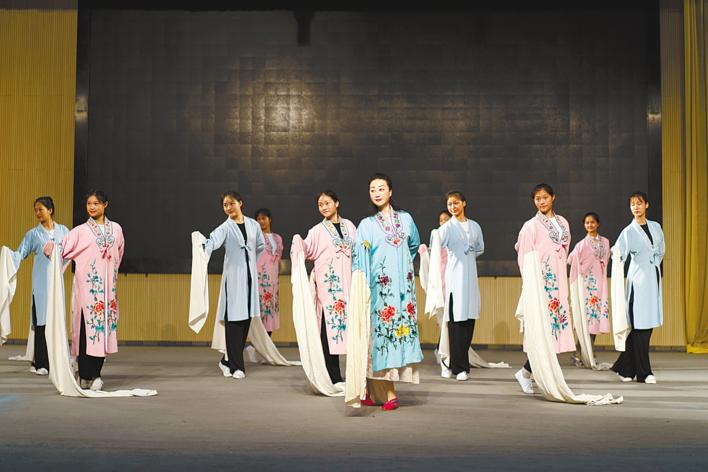
Through translation, Professor Alain THOREL experienced the rich and aromatic cultural essence of this opera, which flourishes in the mountains and fields of southeastern Hubei, China. During the performance, he swayed gently to the rhythm of the drums. Although he could not understand the specific lyrics, the drama’s essence transcended language, resonating deeply with him.
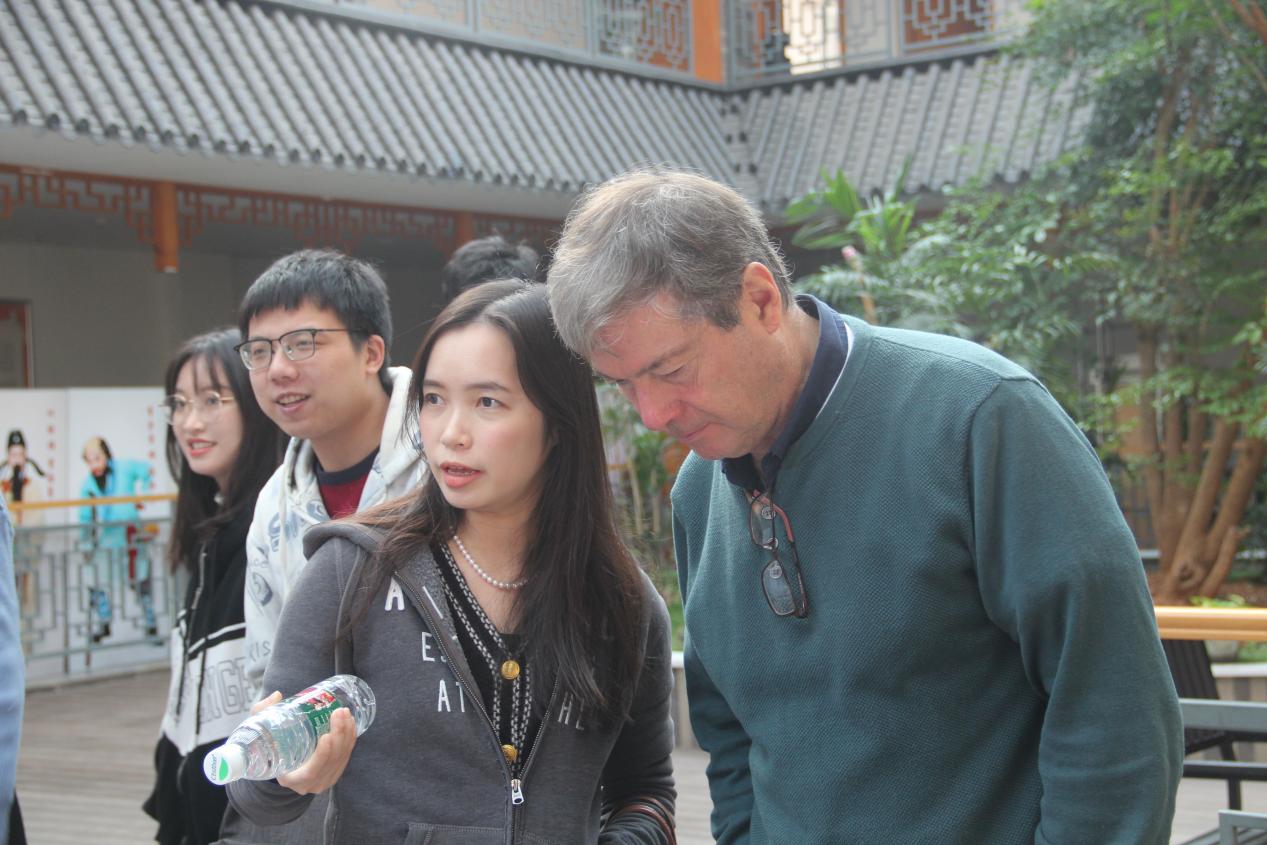
After the performance, the actors invited the team to the rehearsal room to demonstrate their training routines. Some international students had the opportunity to try on the costumes of tea-picking opera roles, such as dan (female) and xiao sheng (young male). They also learned vocal techniques, stage movements, and water-sleeve gestures from the performers.
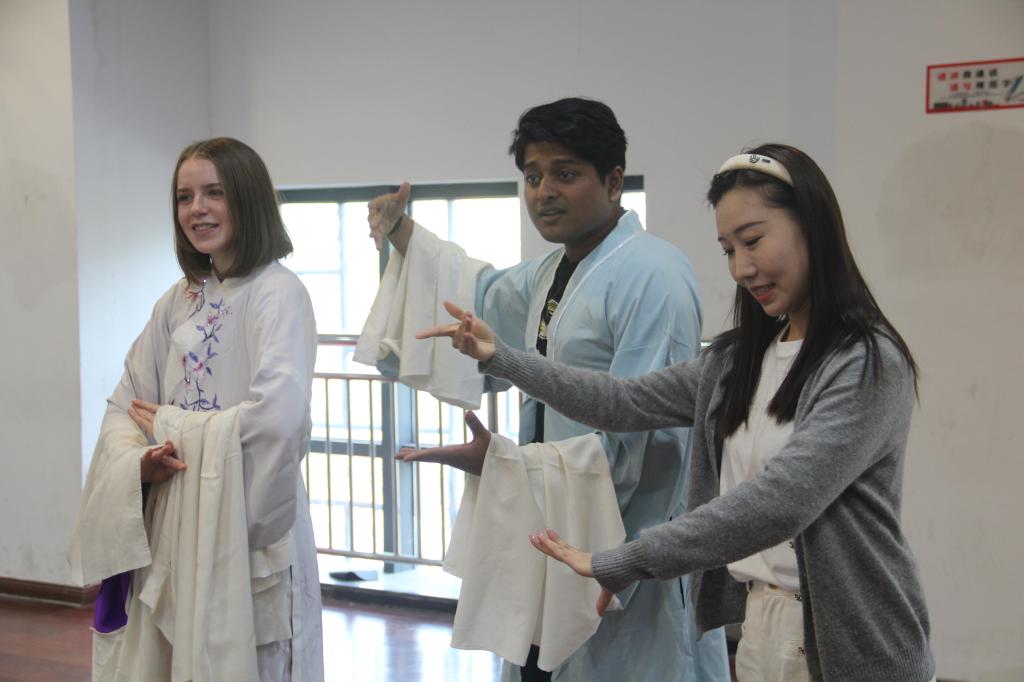
The team members expressed their commitment to supporting the future development of tea-picking opera through initiatives like “campus promotion, cultural products, and international exchange.” By leveraging the creativity and cohesion of students at Huazhong University of Science and Technology, they aim to help this unique local art thrive across the country and foster the brilliance of cultural exchange between China and the world.
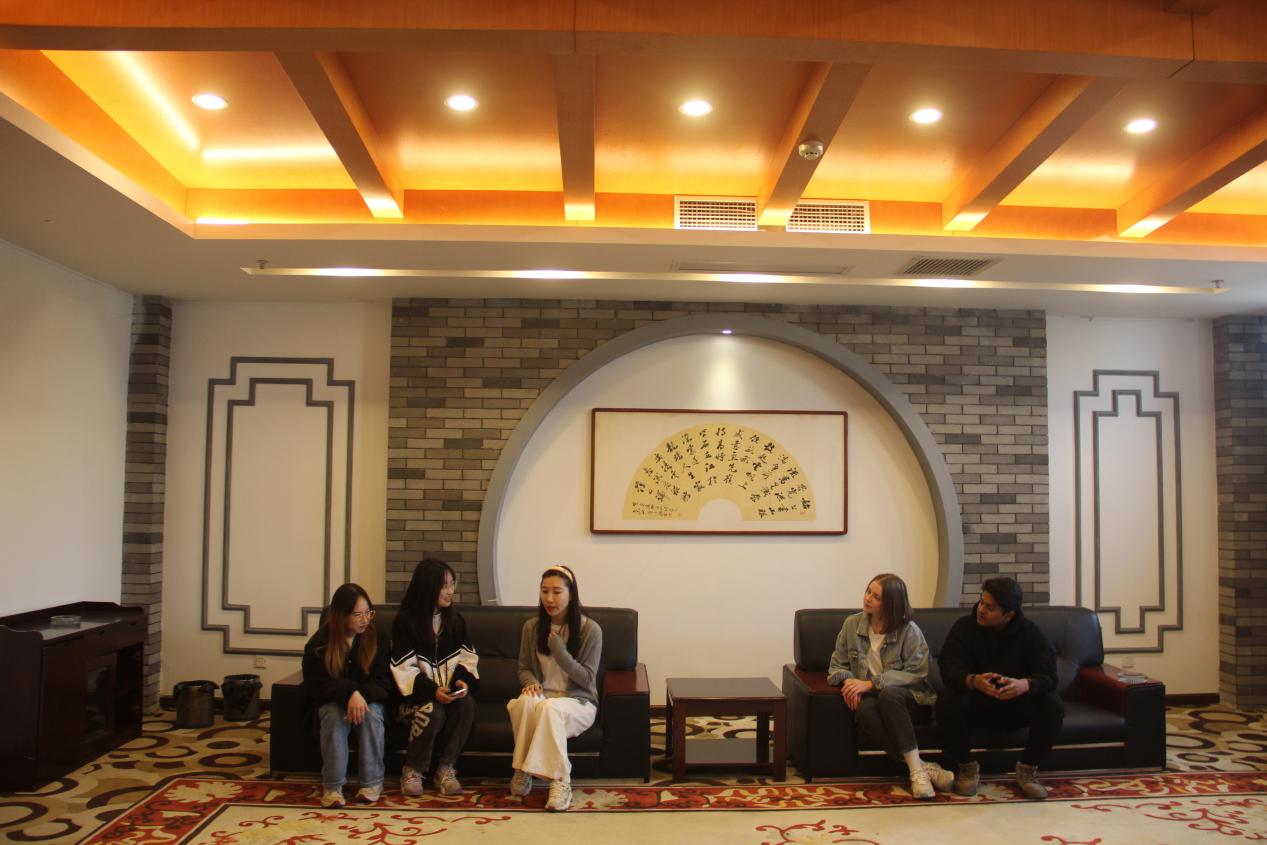
Each participant shared their reflections on this enriching journey:
Ma Li, a Class of 2024 postgraduate student at ICARE, said, “I feel honored to bring everyone here to learn about the tea-picking opera from my hometown. I am immensely proud of how it has evolved—from its roots in the mountains and fields to the national stage. This transformation reflects the dedication of generations of the troupe’s successors. We should cherish these cultural treasures from our hometown, helping them flourish and reach audiences across the country and the world.”
Ren Tianyu, another Class of 2024 postgraduate student at ICARE, remarked, “I am from Xi'an, Shaanxi. Unlike the Qin Opera I grew up listening to, tea-picking opera has a gentle, flowing quality—like a graceful and lively young lady. This experience has allowed me to fully appreciate the richness and diversity of Chinese culture. I will continue to follow the development of tea-picking opera, ensuring that ancient traditions and modern styles harmoniously coexist.”
Geng Yajie, a Class of 2024 postgraduate student from the School of Civil and Hydraulic Engineering, shared, “This experience has shown me how tea-picking opera not only thrives locally but also tours other provinces and has plans to reach international audiences. It’s particularly inspiring to see so many young performers—some as young as 18 or 19—actively engaging in traditional arts and preserving cultural heritage. The troupe leader even taught us and the international students some dance moves, which deepened our understanding of intangible cultural heritage through cross-cultural exchanges.”



